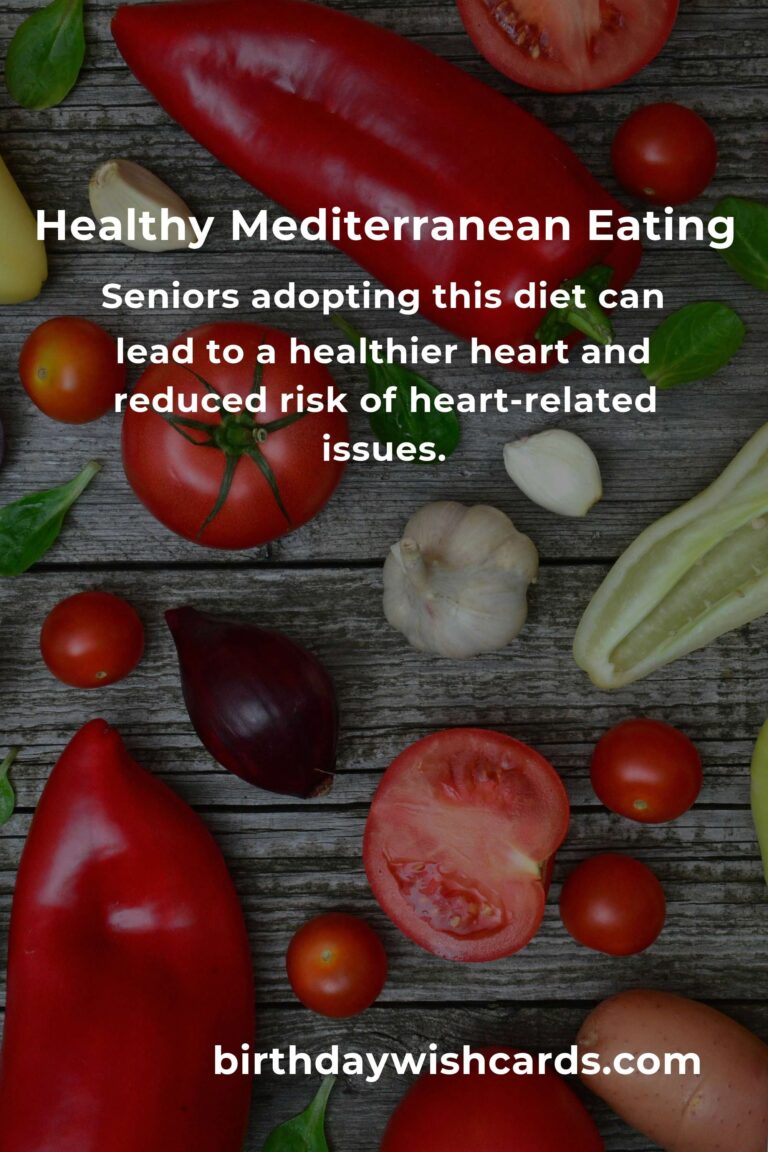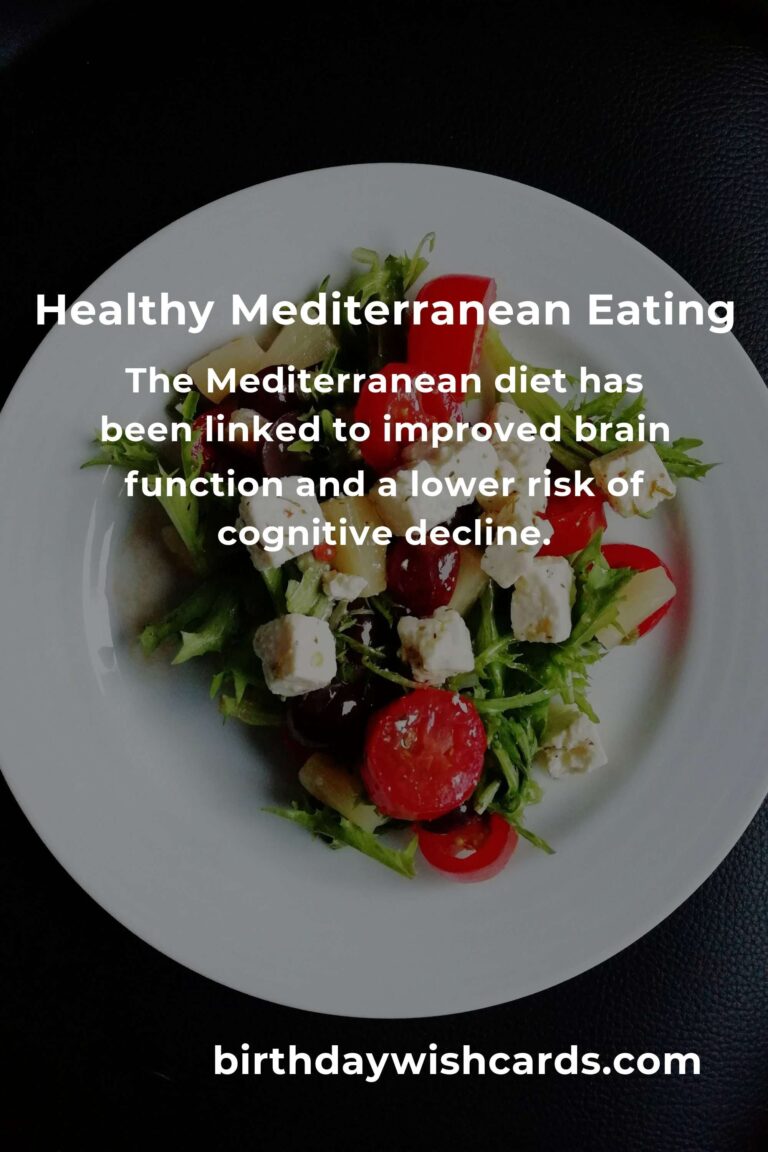
The Mediterranean diet is renowned for its heart-healthy benefits and overall nutritional excellence. This diet, inspired by the traditional eating patterns of countries bordering the Mediterranean Sea, offers a plethora of health benefits, particularly for seniors. Understanding the components and advantages of this diet can lead to improved well-being and longevity for older adults.
What is the Mediterranean Diet?
The Mediterranean diet is characterized by a high consumption of fruits, vegetables, whole grains, legumes, nuts, and seeds. Olive oil is the main source of fat, and there is a moderate intake of fish and poultry, with limited consumption of red meat and sweets. This balanced diet emphasizes plant-based foods and healthy fats, making it an ideal choice for maintaining health in senior years.
Key Benefits for Seniors
1. Cardiovascular Health
One of the most significant benefits of the Mediterranean diet is its positive impact on heart health. The diet is rich in omega-3 fatty acids from fish and monounsaturated fats from olive oil, which help reduce cholesterol levels and lower the risk of heart disease. For seniors, adopting this diet can lead to a healthier heart and reduced risk of heart-related issues.
2. Cognitive Function
As we age, cognitive decline becomes a concern. The Mediterranean diet has been linked to improved brain function and a lower risk of cognitive decline. The high intake of fruits, vegetables, and healthy fats contributes to better brain health, potentially delaying the onset of dementia and Alzheimer’s disease in seniors.
3. Bone Health
Osteoporosis and bone fractures are common issues for older adults. The Mediterranean diet includes foods rich in calcium and vitamin D, such as leafy greens and certain fish, which are essential for maintaining strong bones. Additionally, the anti-inflammatory properties of this diet help reduce bone loss and support overall bone health.
4. Longevity
Seniors looking to increase their lifespan may find the Mediterranean diet beneficial. Studies have shown that adhering to this diet is associated with a reduced risk of mortality from all causes. The diet’s emphasis on whole, unprocessed foods and healthy fats contributes to a longer, healthier life.
How to Implement the Mediterranean Diet
Transitioning to a Mediterranean diet can be simple and enjoyable. Here are some tips for seniors looking to make the switch:
- Incorporate a variety of fruits and vegetables into each meal.
- Use olive oil as the primary source of fat for cooking and dressing salads.
- Include fish in the diet at least twice a week.
- Choose whole grains like quinoa, brown rice, and whole wheat pasta.
- Snack on nuts and seeds for healthy fats and protein.
- Limit red meat and replace it with poultry or plant-based proteins like legumes.
- Enjoy meals with family and friends to enhance the dining experience.
Conclusion
The Mediterranean diet offers numerous benefits for seniors, promoting heart health, cognitive function, bone strength, and longevity. By incorporating this balanced and nutritious eating pattern into their lives, seniors can enjoy a healthier, more fulfilling lifestyle. Embracing the Mediterranean diet is not only a delicious choice but a strategic one for enhancing quality of life in the golden years.
The Mediterranean diet is renowned for its heart-healthy benefits and overall nutritional excellence.
This diet is characterized by a high consumption of fruits, vegetables, whole grains, legumes, nuts, and seeds.
Seniors adopting this diet can lead to a healthier heart and reduced risk of heart-related issues.
The Mediterranean diet has been linked to improved brain function and a lower risk of cognitive decline.
Adhering to this diet is associated with a reduced risk of mortality from all causes.
#MediterraneanDiet #HealthyAging #SeniorNutrition #HeartHealth #CognitiveFunction













